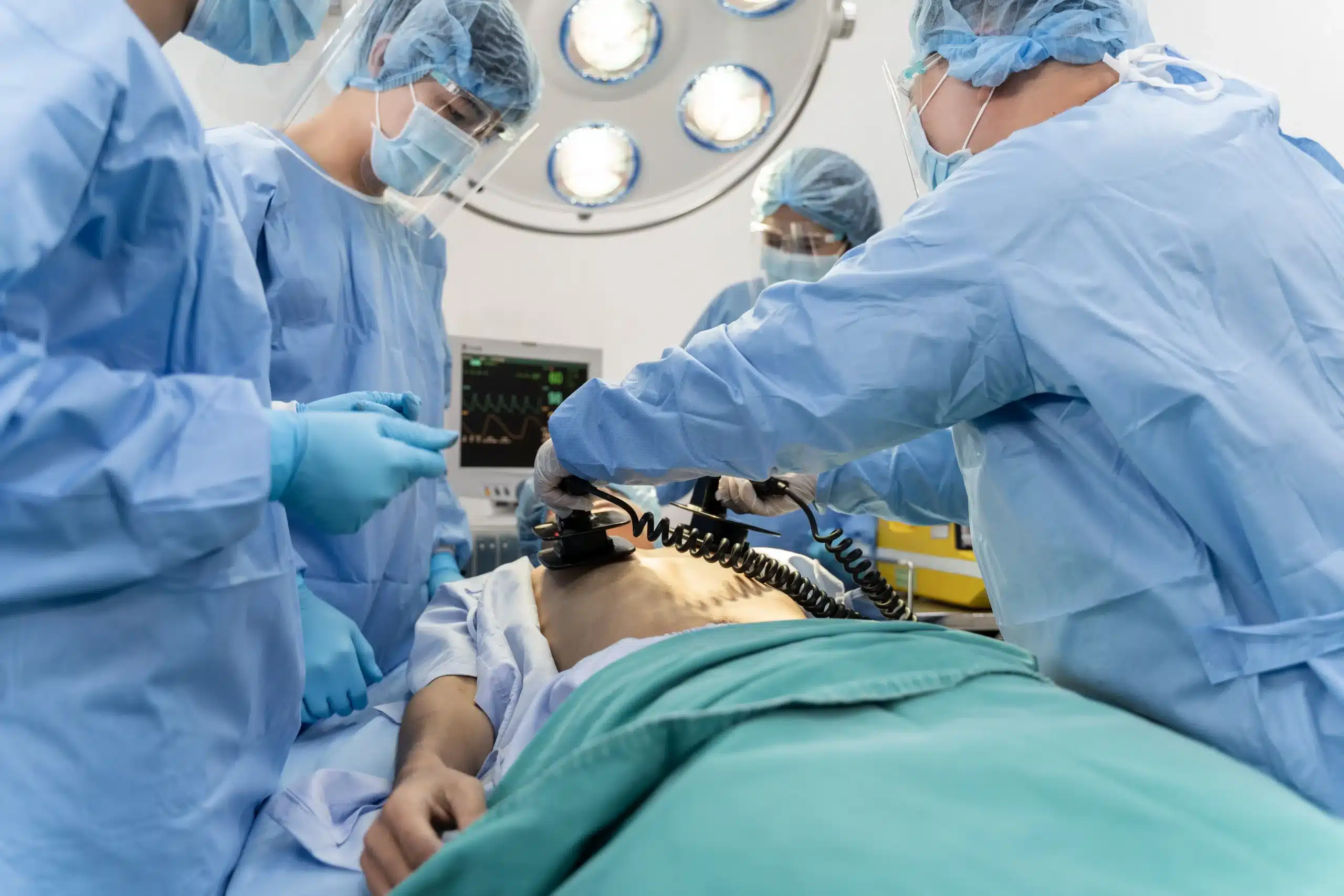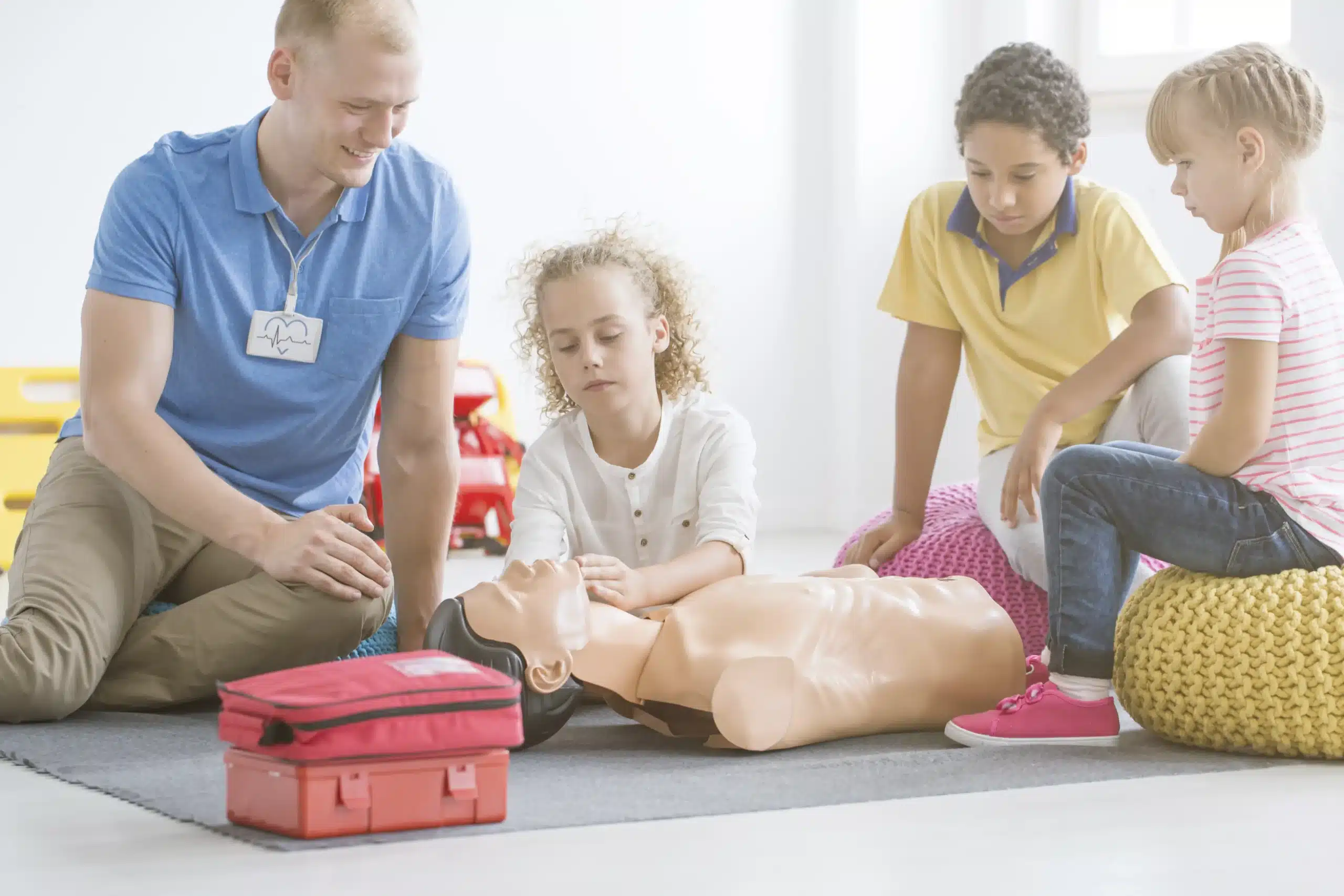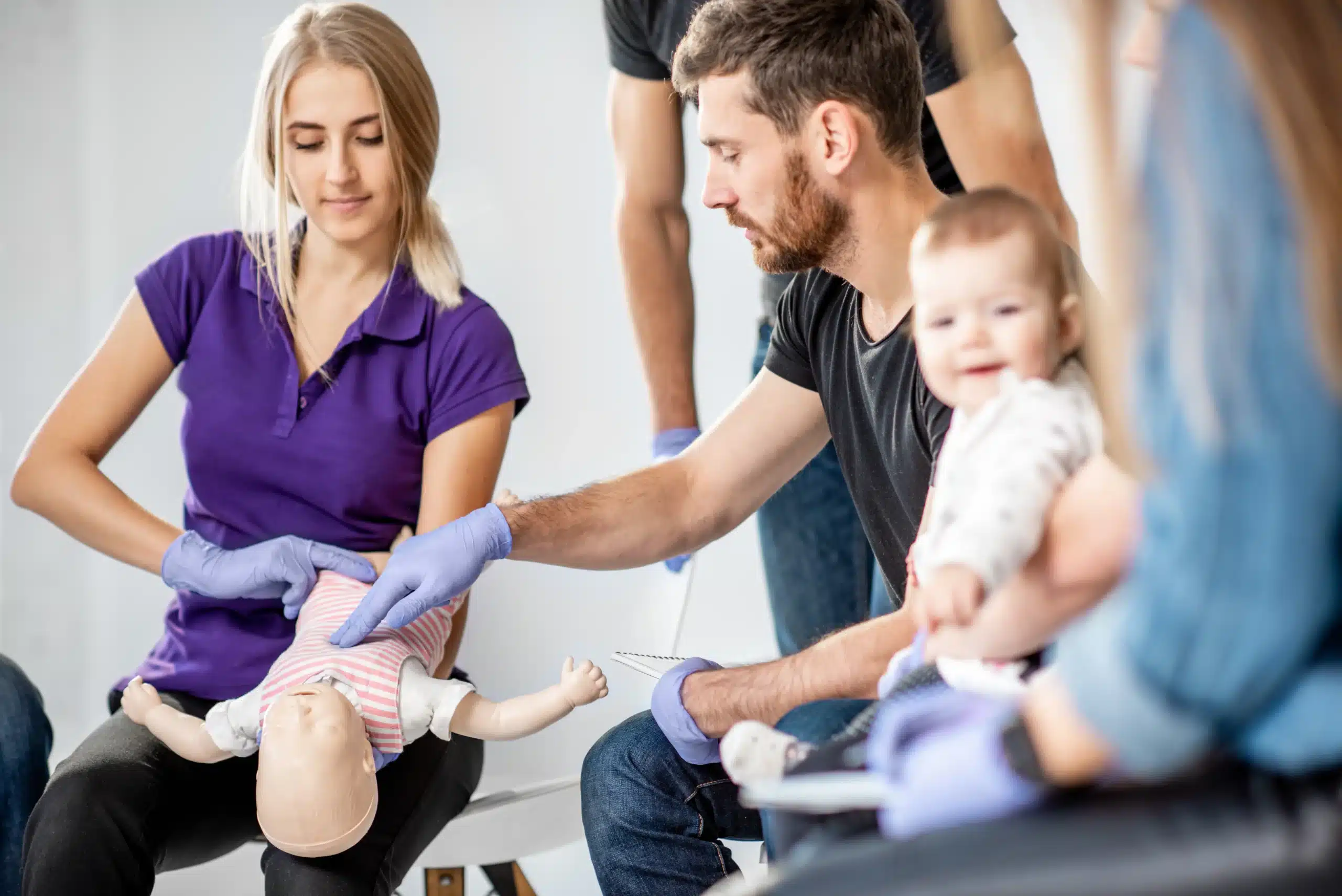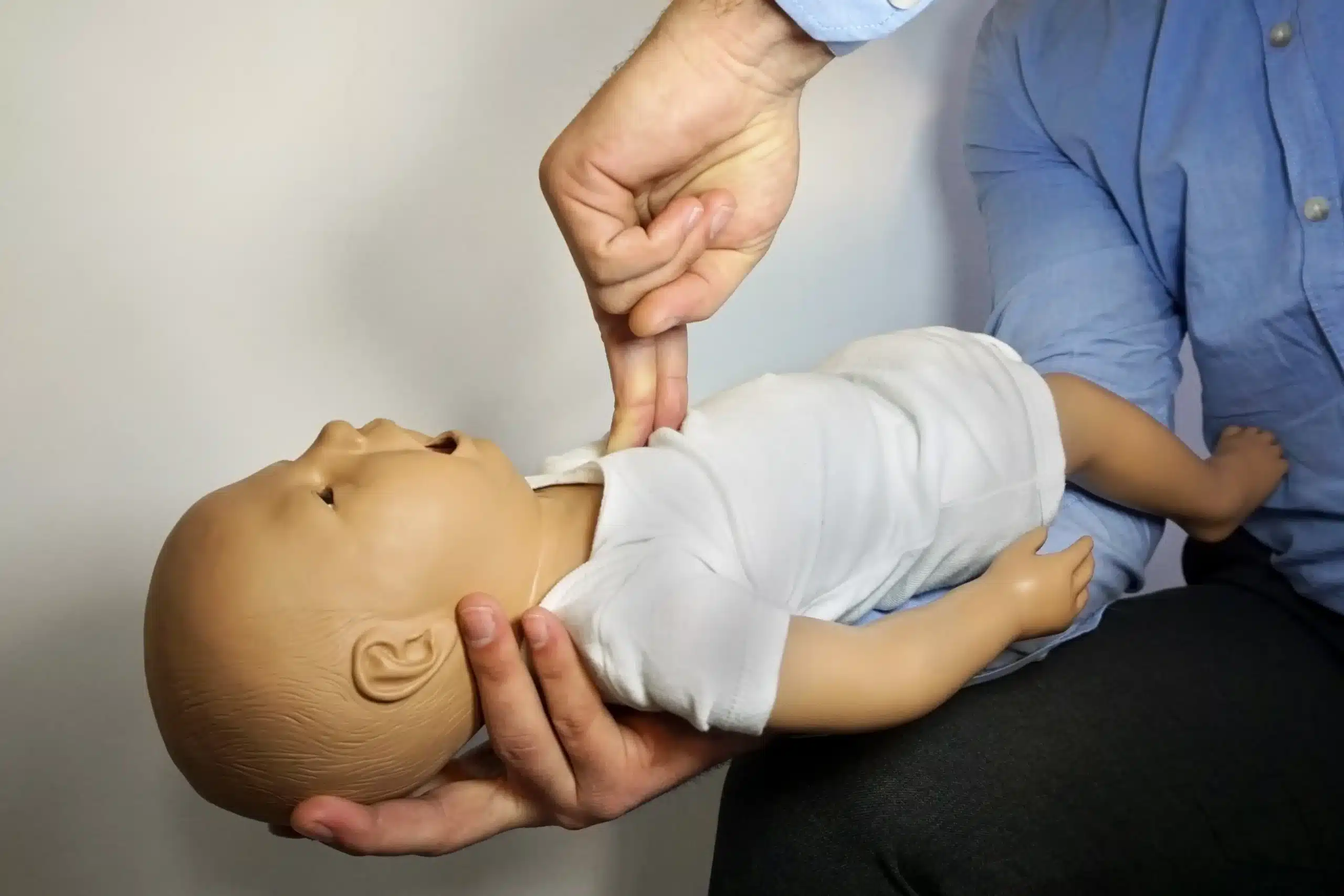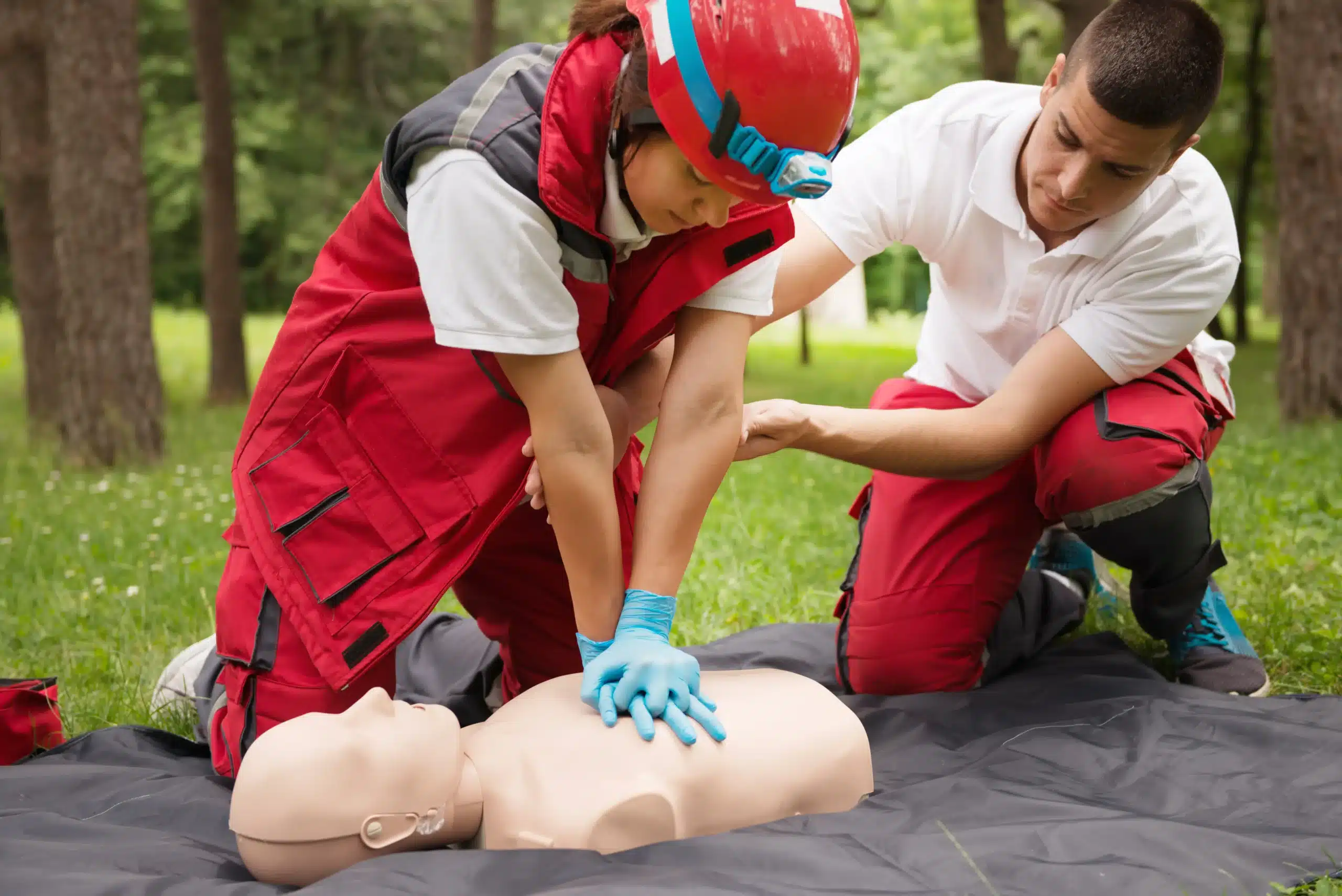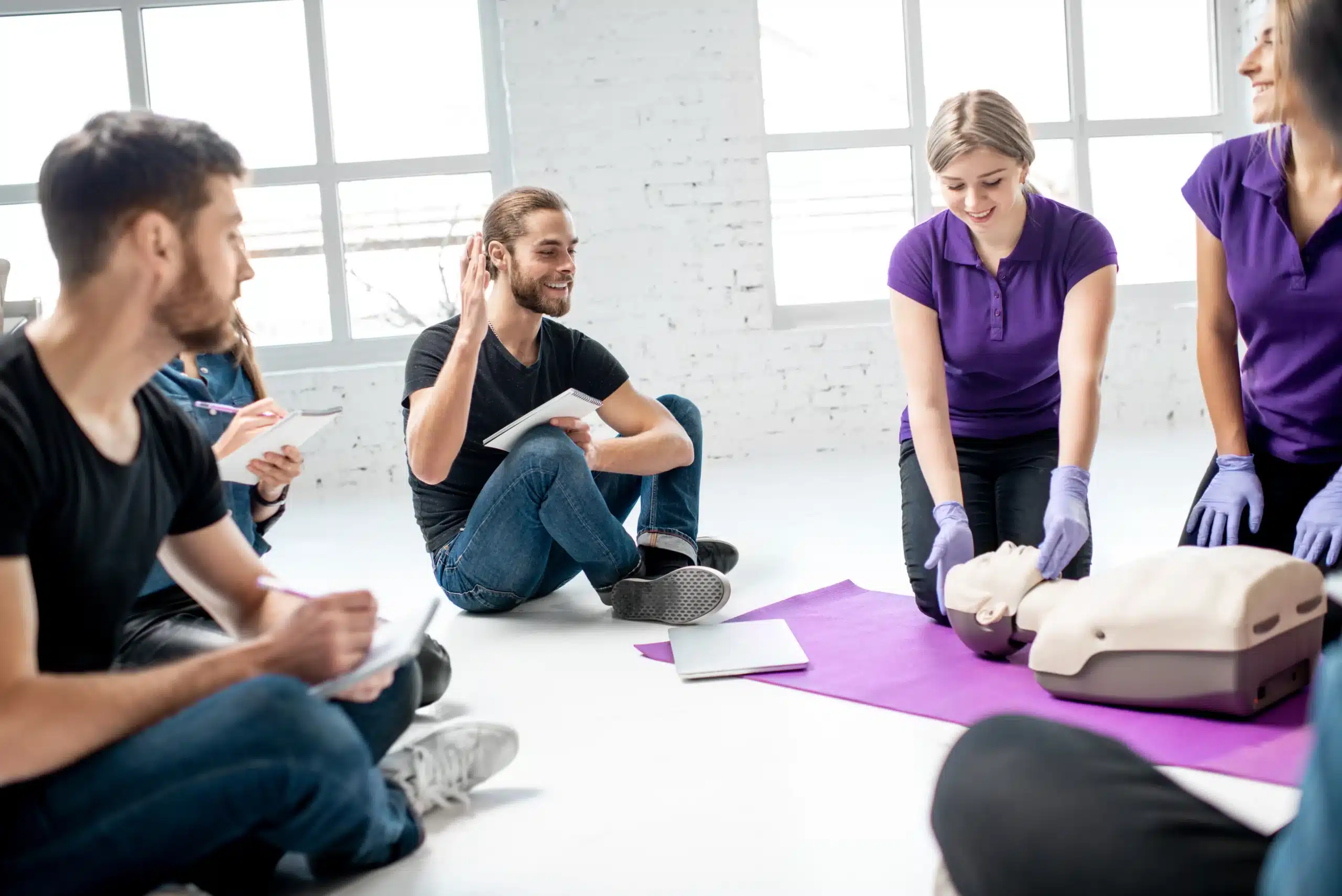Emergencies can happen anytime, anywhere. Are you ready to respond? CPR certification empowers you to act decisively and provide life-saving assistance when it matters most. This guide demystifies CPR certification in Danville, offering a practical overview of the process, the different types of courses, and the advantages of becoming certified. We’ll explore the importance of CPR in various settings, from healthcare facilities to homes and workplaces, and guide you through the steps to find the right training program for your needs. Whether you’re a medical professional, a concerned parent, or simply someone who wants to make a difference, this guide will provide you with the knowledge and resources to become a certified CPR provider.
Key Takeaways
- CPR certification equips you for emergencies: Learning CPR provides the skills and confidence to respond effectively during medical crises, potentially saving lives. Choose a course that fits your needs and experience level.
- Find a reputable training provider: Look for accreditation, convenient locations, and options like group discounts or low-price guarantees when selecting a CPR course. Providers like San Ramon CPR Courses offer various AHA-certified options.
- CPR training offers wide-ranging benefits: Beyond the ability to help in emergencies, CPR certification can boost your career prospects, increase your personal confidence, and contribute to a safer community.
What is CPR Certification?
CPR certification confirms you’ve completed a CPR training program and can perform CPR effectively in emergencies. It signifies you’re equipped to provide immediate assistance to someone experiencing cardiac arrest or other life-threatening situations. This training empowers you to deliver chest compressions, rescue breaths, and other essential life-saving techniques until professional medical help arrives. Holding a valid CPR certification demonstrates your preparedness and commitment to helping others in critical moments. For a deeper dive into CPR and first-aid training, check out our CPR and first-aid certification courses.
What does CPR certification mean?
A CPR certification means you’ve successfully learned the skills to perform CPR. It involves understanding the fundamentals of CPR, recognizing the signs of a cardiac emergency, and demonstrating the correct techniques for chest compressions and rescue breaths. This often includes training on how to use an automated external defibrillator (AED). Certification typically involves a hands-on skills test and a written exam to ensure you’ve grasped the necessary knowledge and can apply it effectively. CPR certification is a valuable asset, providing the confidence to act quickly and potentially save a life.
Why is CPR certification important?
CPR certification equips you with the skills to respond effectively during medical emergencies. Studies show that effective CPR training saves lives, increasing the chances of survival for someone experiencing cardiac arrest. Knowing how to perform CPR can bridge the gap before professional medical personnel arrive, significantly impacting the outcome. It also helps dispel common misconceptions about CPR, allowing you to act confidently and efficiently in a crisis. Beyond the practical skills, CPR certification provides peace of mind, knowing you can make a difference in a life-or-death situation. For more information on CPR training in the Danville area, see our resources on CPR training in Danville.
What types of CPR courses are available?
Several CPR courses cater to different needs and experience levels. Basic CPR and first-aid courses provide foundational knowledge and skills for anyone interested in learning CPR. EMSA Child Care Health & Safety training is specifically designed for childcare providers. Advanced certifications, such as Basic Life Support (BLS), Advanced Cardiovascular Life Support (ACLS), Pediatric Advanced Life Support (PALS), and Neonatal Resuscitation Program (NRP), are tailored for healthcare professionals and those seeking more specialized training. San Ramon CPR Courses offers a variety of American Heart Association certification classes, including BLS, ACLS, PALS, and CPR/First Aid, ensuring there’s a suitable course for everyone. We also offer RQI classes. For those looking for cost-effective options, explore our group discounts and our low price guarantee.
Best CPR Certification Providers Near Danville
Finding the right CPR certification course can feel overwhelming, but several excellent providers serve the Danville area. Here’s a rundown of some top choices to help you in your search.
San Ramon CPR Courses
San Ramon CPR Courses offers competitively priced CPR certifications, including BLS, ACLS, and PALS. Their convenient location near Danville makes them a practical choice for those living or working in the area. They also offer group discounts and a low-price guarantee. For specialized training, check out their website for information on EMSA Child Care Health & Safety and RQI classes.
American Heart Association Programs
If you’re looking for American Heart Association (AHA) certified courses, you have several options. Danville CPR Classes offers a comprehensive range of AHA courses, including CPR and First Aid, BLS, ACLS, PALS, and NRP. They are known for their high-quality instruction and also offer a low-price guarantee.
American Red Cross Offerings
While AllCPR focuses primarily on American Red Cross certifications, they also offer AHA Healthcare Provider training in San Ramon. This provides an alternative for those seeking CPR and first-aid training that aligns with AHA guidelines.
Safety Training Seminars
Safety Training Seminars provides a range of American Heart Association courses, including CPR, BLS, ACLS, PALS, NRP, and First Aid. This makes them a versatile option for individuals or groups needing various certifications.
Danville CPR Classes
Danville CPR Classes prioritizes high-quality, AHA-certified courses and offers a low-price guarantee, making them a budget-friendly choice for reliable certification.
CPR Course Details: What to Expect
Deciding to get CPR certified is a great first step. Now, let’s figure out the logistics. This section covers what you can expect during your training, from course formats to cost.
In-Person, Online, or Hybrid?
San Ramon CPR Courses offers American Heart Association certification classes, including BLS, ACLS, PALS, and CPR/First Aid. Their convenient location at Bishop Ranch 1 serves San Ramon, Dublin, and Danville. This means you can find in-person training without the hassle of a long commute.
How Long Does Certification Take?
CPR certification doesn’t take weeks or months. You can become certified relatively quickly, often within a single day, depending on the course. This makes it easy to fit into your busy schedule. Plus, if you’re looking to certify with a group, consider exploring group discounts to make the process even smoother.
How Much Does CPR Certification Cost?
The cost of CPR certification varies depending on the course type and training provider. It’s always a good idea to compare prices and look for providers with a low-price guarantee, like San Ramon CPR Courses. Knowing what’s included in the course fee—like the certification card or any study materials—will help you budget effectively.
Group Discounts and Special Offers
If you’re training with friends, family, or colleagues, look for group discounts. Many providers, including San Ramon CPR Courses, offer reduced rates for group bookings. This can be a great way to save money and learn alongside people you know. For more information on group training options, take a look at their RQI classes. This makes CPR training more accessible and affordable for everyone.
Benefits of CPR Certification
Getting CPR certified offers several advantages, from personal empowerment to career advancement and making a real difference in your community. Let’s take a closer look at these benefits.
Personal Advantages
CPR certification gives you the skills to respond effectively during medical emergencies. Knowing you can potentially save someone’s life brings confidence and a sense of preparedness, whether at home, work, or out and about. CPR is a vital skill everyone should learn, from family members to community members. Quality CPR training teaches you to perform CPR safely and effectively, minimizing risks and maximizing the chances of a positive outcome. This knowledge can truly make a difference for your loved ones and the people around you.
Professional Growth Opportunities
CPR certification is often a job requirement or a significant advantage in many professions. In healthcare, CPR certification, particularly from the American Heart Association, is frequently essential for career growth. AHA certifications are highly regarded by employers and can create new career opportunities. Even outside healthcare, CPR training demonstrates valuable skills and a commitment to safety, strengthening your resume for various fields. It’s a portable skill that can benefit your career in many ways.
Community Impact
People trained in CPR play a vital role in building a safer and more resilient community. Bystanders trained in CPR can provide immediate assistance before first responders arrive, significantly improving survival odds in emergencies. Understanding CPR empowers more people to act confidently and effectively in these critical situations. The quality of CPR administered has a major impact on survival rates, especially in cases of in-hospital cardiac arrest. Competent CPR providers in a community create a safer environment for everyone.
How to Choose a CPR Certification Course
Finding the right CPR certification course isn’t one-size-fits-all. It depends on your specific needs and goals. This section breaks down key factors to consider when making your decision.
Factors to Consider
First, think about why you’re getting certified. Are you a healthcare provider required to maintain BLS certification? Or are you a parent wanting to learn CPR for children? A childcare provider looking for EMSA Child Care Health & Safety training? Choosing a course tailored to your situation ensures you learn the most relevant skills. For example, healthcare professionals often need ACLS or PALS certification in addition to BLS. If you’re unsure which course is right for you, contact San Ramon CPR Courses for personalized guidance.
Why Accreditation Matters
Accreditation is a big deal in CPR training. It means the course meets established standards and is recognized by employers and organizations. Look for courses accredited by reputable organizations like the American Heart Association. San Ramon CPR Courses offers AHA-certified courses, giving you confidence in the quality of your training. This is especially important for healthcare professionals and those in regulated industries.
Recertification Requirements
CPR skills require periodic refreshing to stay sharp. Before signing up for a course, understand the recertification requirements. How often will you need to renew? Different certifications have different timelines. Knowing this upfront helps you plan for the future and maintain your qualifications. Check with your employer or licensing board for specific requirements. San Ramon CPR Courses also offers convenient renewal courses to help you stay current. They also offer a low price guarantee and group discounts.
Related Articles
- San Ramon CPR Certification: Your Guide – San Ramon CPR Classes
- Why CPR is Important in Healthcare – San Ramon CPR Classes
- CPR Training in Dublin: Your Guide – San Ramon CPR Classes
- CPR Classes in Danville: Your Complete Guide – San Ramon CPR Classes
- Online CPR Classes Dublin: Your Complete Guide – San Ramon CPR Classes
Frequently Asked Questions
How quickly can I get CPR certified?
CPR certification can often be completed in a single day, depending on the specific course and provider. This makes it manageable even with a busy schedule.
What’s the difference between CPR and First Aid certification?
CPR focuses on life-saving techniques for cardiac and breathing emergencies, while First Aid covers a broader range of injuries and illnesses, including cuts, burns, and allergic reactions. Many courses combine both CPR and First Aid training.
Does my CPR certification expire?
Yes, CPR certifications typically expire after a certain period, often every two years. Recertification is necessary to maintain your skills and ensure you’re up-to-date with the latest guidelines.
How do I choose the right CPR class for me?
Consider your specific needs and goals. Healthcare providers often require BLS, ACLS, or PALS certification, while others may benefit from a basic CPR/First Aid course. Think about where you’ll use your skills and choose a course accordingly. If you’re unsure, contact a training provider like San Ramon CPR Courses for guidance.
Why should I choose San Ramon CPR Courses?
San Ramon CPR Courses offers a range of AHA-certified courses, convenient locations, competitive pricing with a low-price guarantee, and group discounts. They provide high-quality training tailored to various needs, from basic CPR to advanced certifications like BLS, ACLS, and PALS.

